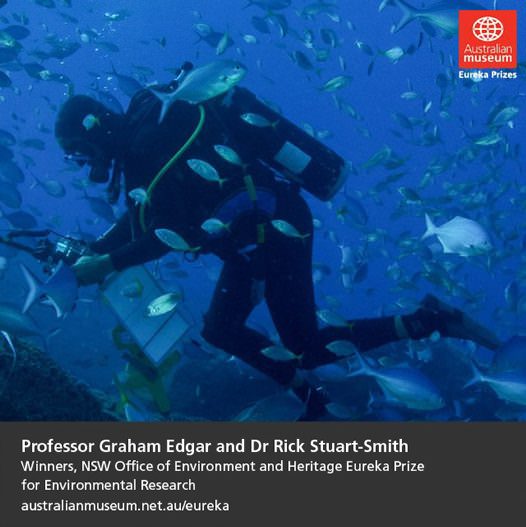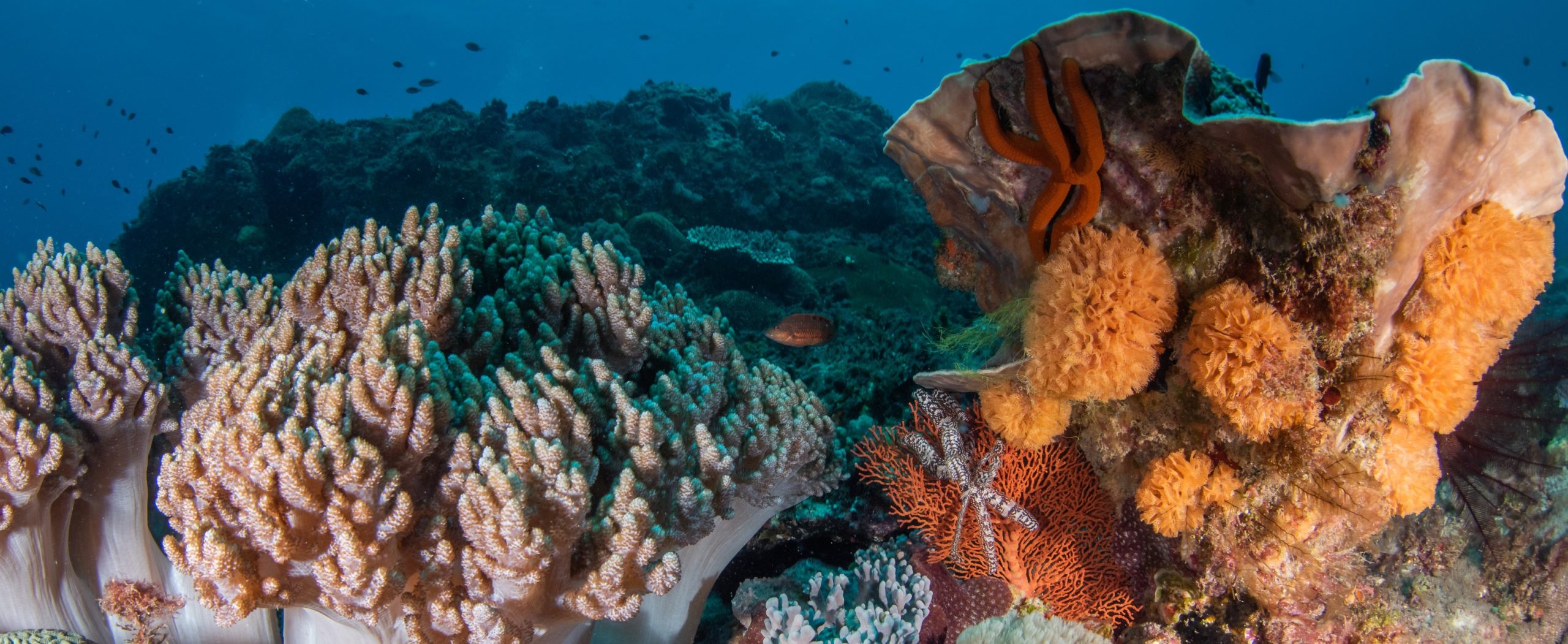Winners: Professor Graham Edgar and Dr Rick Stuart-Smith, University of Tasmania, Reef Life Survey.
The Reef Life Survey team has harnessed the efforts of 200 divers around the planet to create a unique global data set that’s generating significant scientific findings.
Their data has shown for example that nutrients leaking from fish farms often extend hundreds of metres from the farm, rather than tens of metres as assumed in regulations. And they’ve shown that marine protected areas can take decades to recover from fishing.
For their creation of the Reef Life Survey the University of Tasmania’s Graham Edgar and Rick Stuart-Smith have won the NSW Office of Environment and Heritage Eureka Prize for Environmental Research.
The team carefully trained and marshalled over 200 volunteer divers, who between them logged thousands of hours of diving in over 2000 different locations around Australia and globally, from polar regions to the tropics.
The survey applies the talent and commitment of highly trained recreational divers to collect data on population trends of thousands of marine species across geographic scales impossible for traditional scientific dive teams to cover.
By ensuring volunteers were skilled surveyors, the Reef Life Survey has elevated citizen science to mainstream marine science. The big data generated had led to papers being requested by the prestigious Nature journal, and to recommendations for the management of marine park areas and ocean fish farming.
“The Reef Life Survey elevates citizen science to the same status as mainstream marine science.” Australian Museum Director and CEO Kim McKay said. “It’s a remarkable new resource for marine science around the world.”

The Australian Museum Eureka Prizes are the country’s most comprehensive national science awards. The Eureka Prizes have been rewarding science since 1990—celebrating 25 years in 2014.
The other finalists were:
Article reproduced with the kind permission of the: NSW Office of Environment and Heritage Eureka Prize for Environmental Research.
